
A collaborative webinar by UTAR and BJTU
UTAR Faculty of Engineering and Green Technology (FEGT) and Institute of Postgraduate Studies and Research (IPSR) in collaboration with Beijing Jiaotong University (BJTU) organised a webinar titled “Space of Rural Settlement: The Transition and Cognition of Spaces in Beijing’s Western Suburbs” on 26 October 2020 via Zoom.
Held as part of the UTAR International Collaboration Partner (ICP) Webinar Series, the one-and-a-half-hour webinar focused on the perspectives of a healthy built environment as well as the strategies for sustainable urban and rural development. The webinar was conducted by Assoc Prof Dr Wang Xin from School of Architecture and Design, BJTU China. Before kick-starting the webinar, FEGT Deputy Dean for R&D and Postgraduate Programmes Dr Lo Po Kim and UTAR FEGT lecturer Dr Khor Soo Cheen introduced the speaker, Dr Wang Xin as well as the programmes offered in FEGT to all the webinar participants. Also present at the webinar was IPSR staff Mohamad Faris bin Zulkefli, participants comprising of both UTAR and BJTU academics, staff and students, and the members of the public.
Apart from educating the participants with healthy built environment practices and sustainable urban and rural development strategies, the webinar also aimed to provide a comprehensive platform for the participants to discuss the aspects of how to improve the quality of life in a locality, including spatial development, culture and life, government policies, as well as social components.
Dr Wang’s talk focused on the case study of rural space settlement in Beijing Region of China. The concept of Western Suburbs in Beijing has both spatial and social significance. Since the Yuan Dynasty, its spatial boundaries have continuously changed, becoming a buffer zone between the capital and the surrounding areas. His study of space planning in the rural area explains how the integration of daily norms and culture roadmap can have implication with the rural space settlements.
While presenting the background of his study, Dr Wang displayed two maps of Beijing city taken in the year 1985 and 2010. “When it comes to urbanisation, the phenomenon can be interpreted by factors such as land use, population density and urbanisation degree. The construction land has been continuously expanding since 1985. By the end of 2017, more than 86.5% of people were living in the urban area of Beijing. This indicates that there are still nearly three million people living in the vast western and northern less-urbanised areas,” Dr Wang said.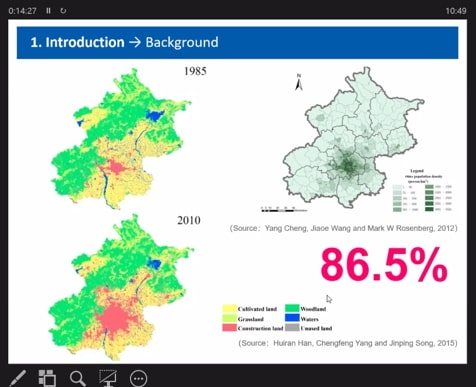
Dr Wang explaining the change in land use in Beijing from 1985 to 2010
Dr Wang also told the participants that his study has contributed to the reconstruction of social space in the peri-urban areas around the capital. Apart from that, the study also provided a method for the integration of space and life between urban and rural.
Dr Wang then introduced a new different way of thinking for the new era of urban development, namely the concept of “Peri-Urbanisation”. He explained, “By tracing the history of urban development, one could find that the transmutation of spatial relations between urban and suburban areas actually reflects the change in the type of spatial cognition.”
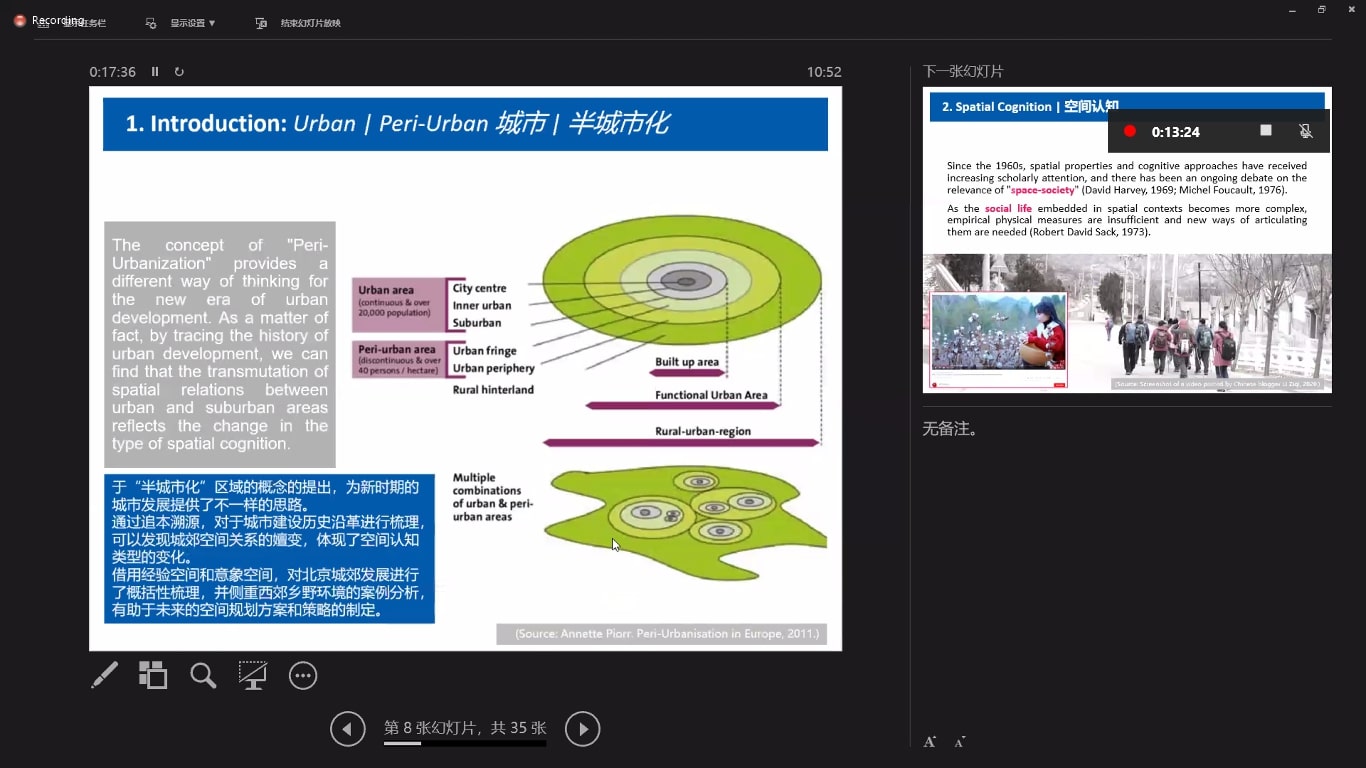
Dr Wang explaining the “Peri-Urbanisation” concept
At the end of his presentation, Dr Wang briefly addressed the expansion and development of villages in the Western Suburbs of Beijing. He also presented the outlook of the rural settlement before the renewal and renovation.
Dr Lo said, “As one of the participants, I feel this webinar is indeed a great platform for knowledge sharing between both universities. This type of collaboration enables more research activities between UTAR lecturers and BJTU lecturers. For instance, the scholars from both universities can work together on research with topics that are similar to ‘Space of Rural Settlement: Case studies of Kampar Malaysia and in Beijing's Western Suburbs China’.” She added, “UTAR lecturers and BJTU lecturers can also co-supervise their postgraduate students from each campus. Student exchange programmes can also be held under this collaboration.”
The webinar ended with a brief Q&A session, in which Dr Wang responded to some of the participants’ intriguing questions.
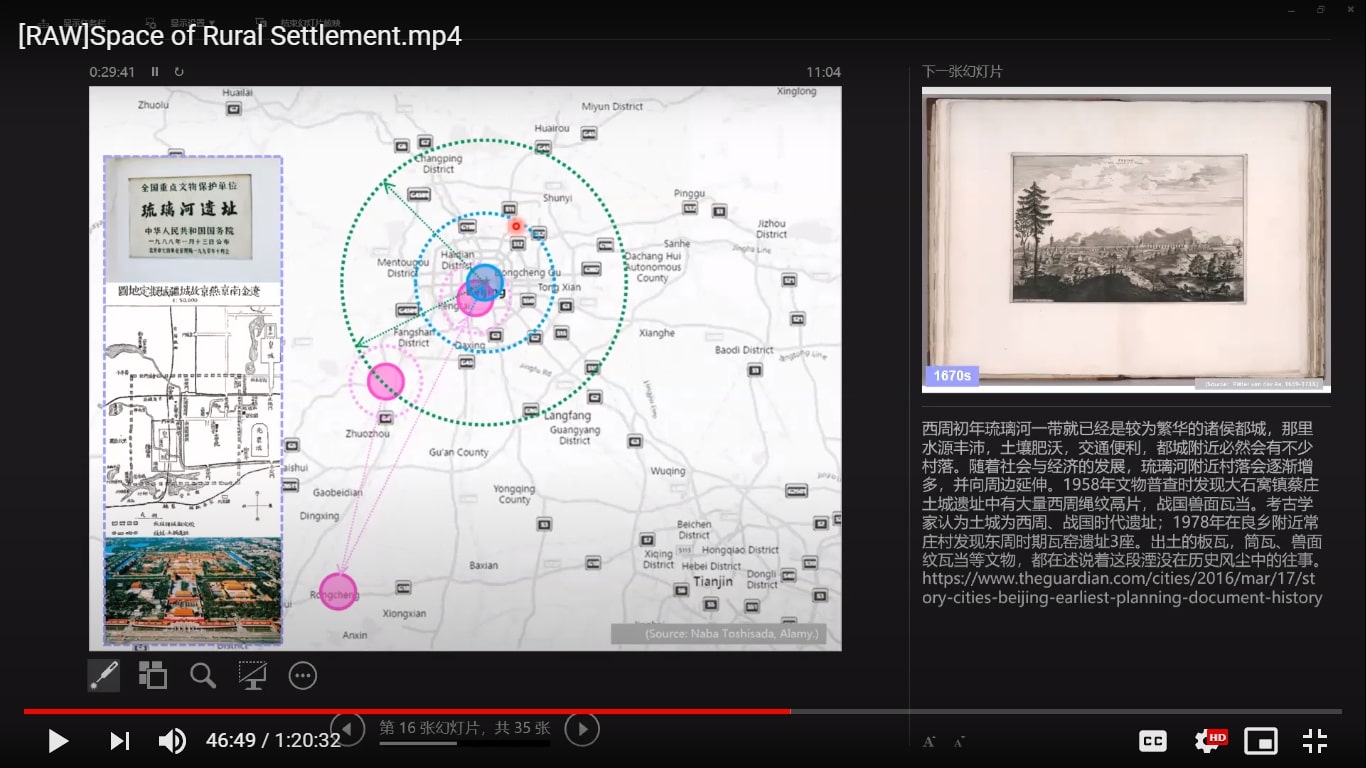
Dr Wang explaining the expansion of rural settlements
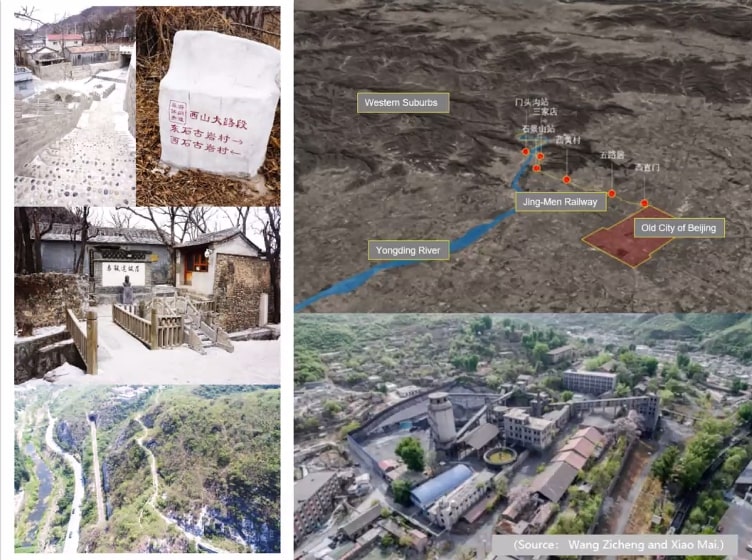
Dr Wang explaining how Wan Ping town was expanded to accommodate the need of the population
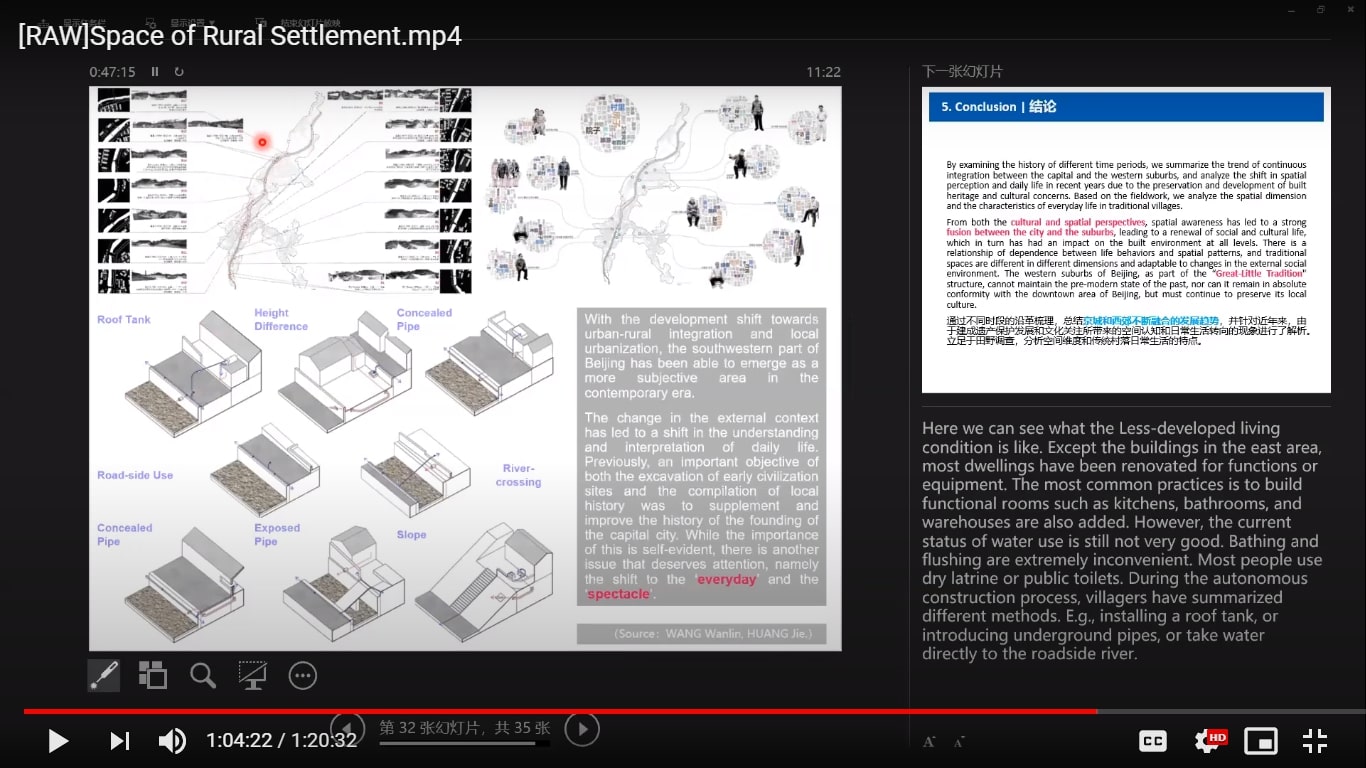
Dr Wang presenting the less-developed condition in some of the rural places
![]()
© 2019 UNIVERSITI TUNKU ABDUL RAHMAN DU012(A).
Wholly owned by UTAR Education Foundation Co. No. 578227-M LEGAL STATEMENT TERM OF USAGE PRIVACY NOTICE